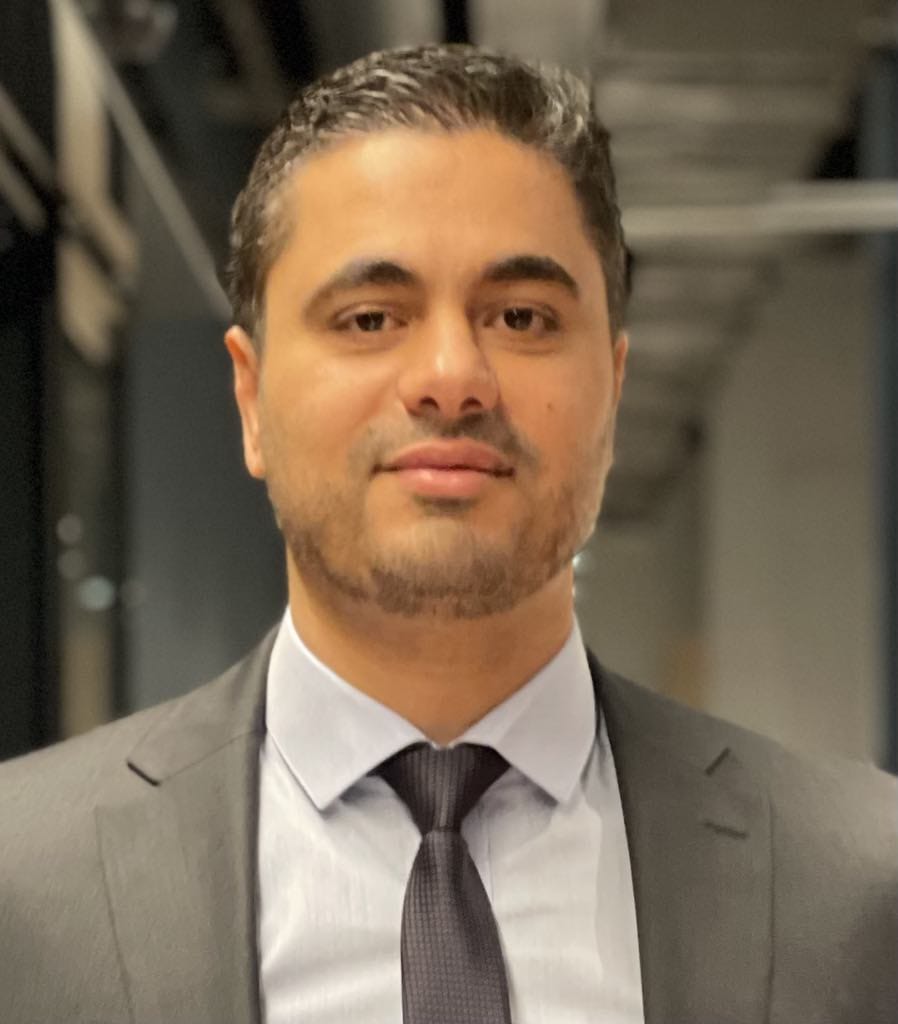يقف في توتر، ويراقب في قلق أحد المسلحين أو رجال الأمن -لا يعرف من هم تحديدا- وهو يفتش الأرقام والصور الشخصية في هاتفه المحمول، قبل أن تنهال عليه الاتهاماتواللعنات بتبعيته لطرف سياسي معين.
فؤاد دياب صحفي فلسطيني في منتصف الثلاثين من عمره يعمل صحفيا في ليبيا منذ عام 2012، يقول إنه تعرض لمضايقات عدة من قبل مسلحين بعضهم تابع لأجهزة الدولة.
يقول دياب عن أحد هذه المواقف: "كنت جالساً في سيارتي مع بعض الأصدقاء، ولم نكن في مهمة صحفية، فجأة فتح مسلحون أبواب السيارة وطلبوا منا الترجل منها وهم يشهرون أسلحتهم في وجوهنا، ثم اقتادونا إلى أحد المقرات الأمنية بعد تجريدنا من أوراقنا الشخصية وهواتفنا الجوالة".
تضييق وتعقيد
التضييق على عمل الصحفيين خصوصاً الأجانب منهم في ليبيا لم يعد يخفى على أحد، وتمثل ذلك في تعقيد إجراءات الحصول على التأشيرة بالإضافة إلى صعوبة الحصول على موافقات أمنية للتصوير وإجراء اللقاءات الصحفية داخل ليبيا.
منظمة مراسلون بلا حدود قالت في بيان لها صدر في يوليو/تموز 2018 إن السلطات الليبية -حكومة الوفاق الوطني في طرابلس- تعقد عمل الصحفيين وتصعب الحصول على التأشيرة أو تجديدها بالإضافة إلى صعوبات إدارية لا تُحصى وجوسسة وضغوطات بحسب شهادات جمعتها المنظمة من صحفيين أجانب في ليبيا.
المنظمة أضافت في بيانها أن التقرير الذي بثته قناة "سي إن إن" الأميركية في نوفمبر/تشرين الثاني الماضي حول استعباد المهاجرين في ليبيا كان سبباً في ردّة الفعل المبالغ فيها من قبل السلطات الليبية، بحسب نص البيان.
اتهامات واعتقالات
يقول دياب الذي غادر ليبيا مضطراً في عام 2016: "رجل الأمن اتهمني بالعمالة لطرف سياسي في ليبيا لمجرد أن وجد أرقام هواتفهم في جوّالي، ورغم أنني حاولت أن أشرح له طبيعة العمل الصحفي الذي يفرض علي التواصل مع كل الأطراف؛ إلا أنه لم يتفهم ذلك قبل أن يتدخل بعض المعارف والأصدقاء لإطلاق سراحنا".
وحتى بعد خروجهم من الاحتجاز يقول دياب إنه لم يعد قادراً على العمل بسبب التشديدات الأمنية والمنع في بعض الأحيان من الحصول على تصريح أمني للتصوير وإجراء المقابلات، ما اضطره إلى عدم مغادرة البيت لفترات طويلة خوفاً من الاعتقال مرة أخرى، رغم أن كافة إجراءاته كانت سليمة من إقامة وتصريح بمزاولة العمل الصحفي من قبل الإعلام الخارجي.
الأمر لم يقف عند الصحفيين والمراسلين الأجانب فقط، بل طال حتى الصحفيين الليبيين الذين يعملون مع قنوات ووكالات أنباء أجنبية.
وبحسب شهادات من مراسلين يعملون في مدينة بنغازي -يفضلون عدم ذكر أسمائهم- فإنهم يتعرضون لضغوطات كبيرة تعرقل دخولهم إلى مؤسسات الدولة والمؤتمرات الصحفية بل وحتى طردهم بشكل مهين في بعض الأحيان.
مراسل لإحدى الوكالات العالمية الشهيرة في بنغازي قال إنه يتعرض لسوء معاملة وتمييز عند تغطيته للمؤتمرات والأحداث في بنغازي، لاسيما الأحداث الأليمة منها، حيث يتعرض لردة فعل قوية من المسلحين عند حضوره لتصوير حادثة ما، رغم قرب الوكالة التي يعمل فيها من القيادات في المنطقة الشرقية.
أبعد من ذلك، حيث تفاجأ في أحد الأيام من محاولة بعض المسلحين المحسوبين على الأجهزة الأمنية في بنغازي اقتحام منزله واعتقاله بسبب نشر الوكالة التي يعمل معها خبراً عن المدينة لم يعجبهم، ورغم أنه لم يكن محرر هذا الخبر، إلا أن ذلك لم يمنع محاولتهم القبض عليه، ما اضطره إلى الاستقالة من الوكالة والابتعاد عن العمل الصحفي نهائياً.
ونقل بيان مراسلون بلا حدود شهادات عدة عن صحفيين تعرضوا للمضايقات وتأخير في الحصول على إذن التصوير.
إحدى هذه الشهادات لصحفية قالت إنها تحصلت على تأشيرة مدتها خمسة عشر يوماً فقط ولم تمنح الموافقة الأمنية بالتصوير الميداني إلا بعد ثمانية أيام من الانتظار، ولا تشمل الموافقة الأمنية التصوير خارج طرابلس أو مخيمات اللاجئين، بحسب الشهادة.
إجراءات احترازية
صهيب الخياطي، مدير مكتب شمال إفريقيا لـ"مراسلون بلا حدود"، قال إن هناك إجراءات تجبر الصحفيين على ارتداء صدرية الصحافة التي تحمل شعار إدارة الإعلام الخارجي، وهي إجراءات يرى أنها تعرض حياة الصحفيين للخطر وتجعل منهم أهدافا للمجموعات المسلحة، وفق تعبيره.
أحد المسؤولين الليبيين الذي فضل عدم الكشف عن هويته شدد على أهمية هذه الإجراءات للحفاظ على سيادة وهيبة الدولة الليبية.
المسؤول نفسه قال إن ليبيا تعاني هذه الفترة مشاكل عديدة وهو ما جعلها مستباحة من جهات ودول أخرى، مؤكداً أن بعض الصحفيين كانوا يعملون لصالح جهات أمنية خارجية وينشرون مواد تضعف من الموقف الليبي في الخارج، حسب قوله.
ورغم المحاولات المتعددة للوصول إلى الجهات المسؤولة في الخارجية الليبية، إلا أنني لم أنجح في الحصول على أي رد بخصوص البيان الذي نشرته منظمة مراسلون بلا حدود.
هذه الإجراءات والتعقيدات أثرت على عمل دياب بل وحتى على حياته، حيث ظل عالقاً في ليبيا ولم يعد قادراً على العمل ولا حتى المغادرة كونه فلسطيني الجنسية ولا يمكنه الدخول إلى أي من دول الجوار الليبي.
ويتابع دياب قائلاً: " تغير كل شيء بالنسبة لي، فقدت عملي ومصدر دخلي الوحيد، أنا أختلف عن باقي الصحفيين الأجانب الذين يمكنهم في نهاية الأمر مغادرة البلاد والعودة إلى عملهم وبلدانهم، أما أنا فقد علقت في ليبيا وليس لي مكان آخر أذهب إليه بسبب جنسيتي الفلسطينية، ولولا مساعدة بعض الأصدقاء الليبيين في الحصول على التأشيرة التركية من قنصليتها بمدينة مصراتة لظللت عالقاً في ليبيا لمدة لا يعلمها إلا الله".
ورغم محاولات دياب العودة إلى ليبيا من جديد لاسترجاع مقتنياته الخاصة ومبلغ من المال قال إنه يحتفظ به في أحد البنوك الليبية، إلا أن كل محاولاته للحصول على التأشيرة الليبية باءت بالفشل.
السماح بتدفق الأجانب لاسيما الصحفيين منهم دون رقابة قانونية صارمة تحفظ سيادة الدولة هو أمر مرفوض بكل تأكيد، لكن هذا أيضاً لا يبرر التعامل مع الصحفيين وكأنهم أعداء وجواسيس.








































